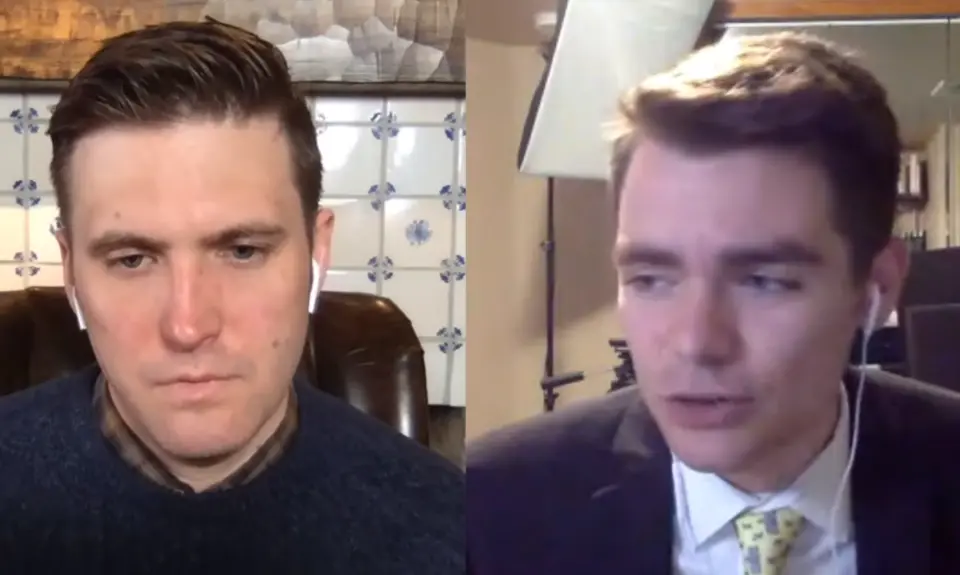Podcaster Nick Fuentes didn’t like that we described him as a “white nationalist” in an article we published last week and so he went on a white nationalist podcast alongside well-known white nationalist Richard Spencer, where he claimed that we were wrong to call him a white nationalist because he doesn’t self-identify as one, before conceding that “it might be descriptive” to call someone like him a white nationalist.
Last week Fuentes went on a political talk show hosted by Jean-Francois Gariépy, the white nationalist former co-host of a prominent YouTube channel once dedicated to the “internet bloodsports” series. Gariepy said he had noticed Fuentes’ displeasure on Twitter at being identified as a white nationalist in what Fuentes said was “a big hit piece about [him] in Right Wing Watch” that noted his speech at the annual American Renaissance conference.
“The reason I wouldn’t call myself a white nationalist—it’s not because I don’t see the necessity for white people to have a homeland and for white people to have a country,” Fuentes said. “It’s because I think that kind of terminology is used almost exclusively by the left to defame and I think the terminology and the labels that we use—I don’t think that we can look at them outside of the context of their connotations in America.”
In other words, Fuentes supports white nationalism, but he doesn’t like the stigma that comes from being called a white nationalist.
“Maybe it might be descriptive to call somebody a white nationalist, I think it sort of loses something when an average person hears that and it’s almost synonymous with Nazi or villain or whatever. And so, I would say I’m a white person, I’m conscious of my white identity, conscious of nationalism, but I think in a way it’s almost redundant that you’re a 'white' nationalist. We know that the word ‘nation’ almost implicitly talks about ethnicity and biology,” Fuentes said.
He added, “So I think if I call myself a nationalist, it’s almost implicit in that word that it’s, 'Well, America does have a heritage of being a European country.' So, a little bit about the wording, because I know a lot of people would be confused by that, but that’s really how I see myself.”






